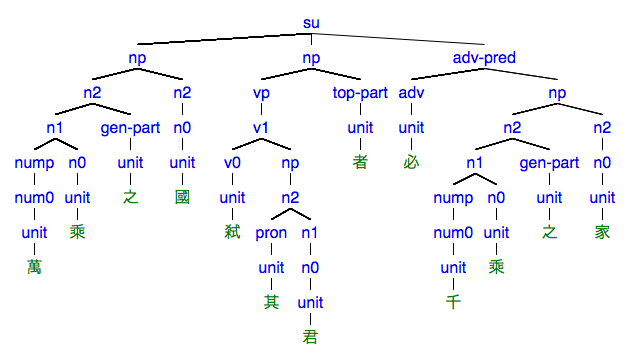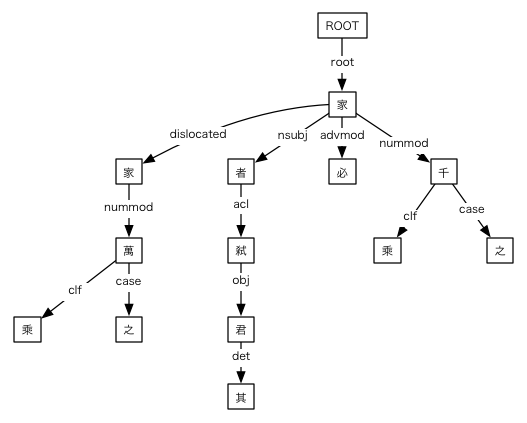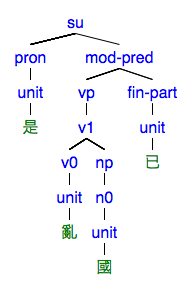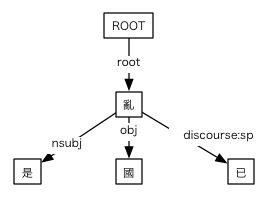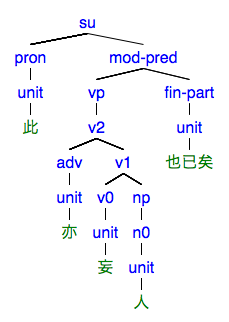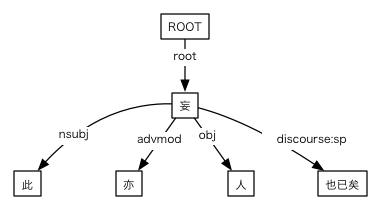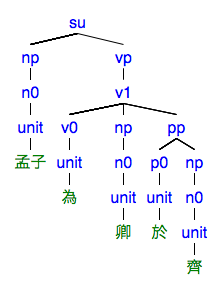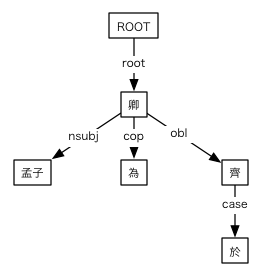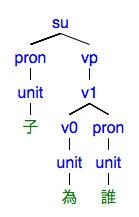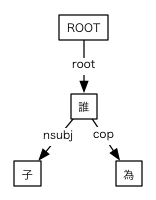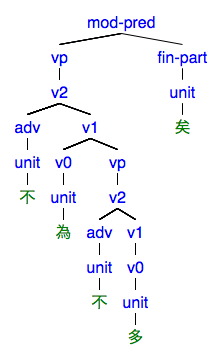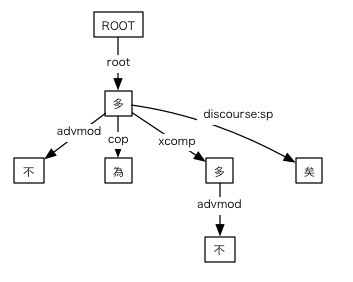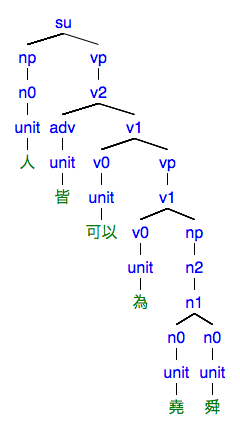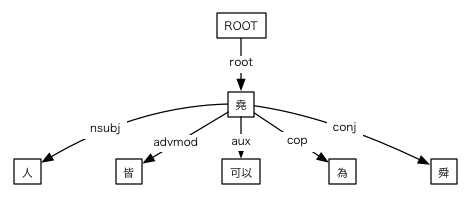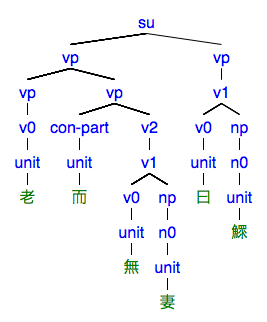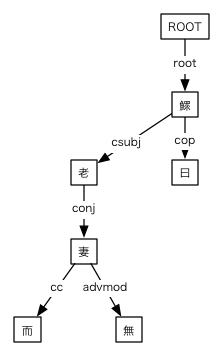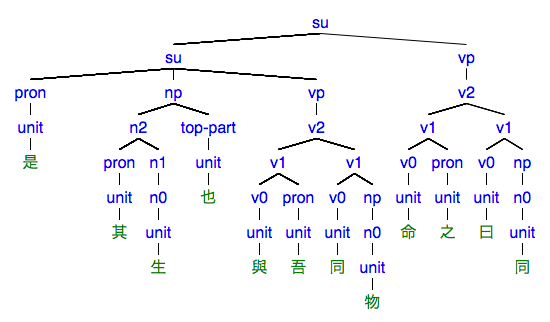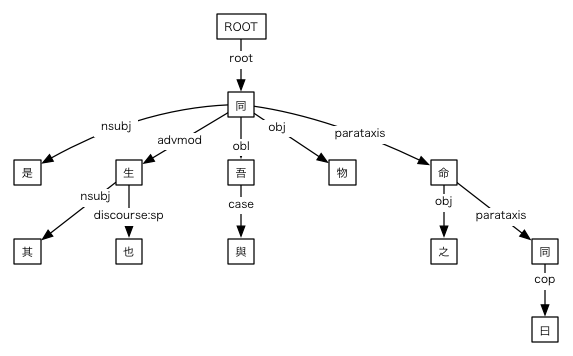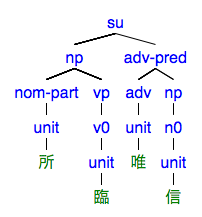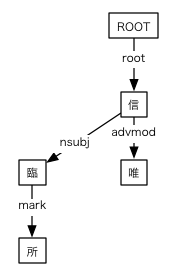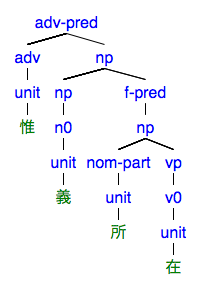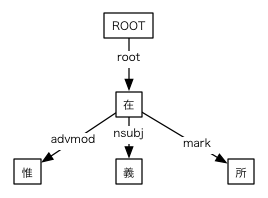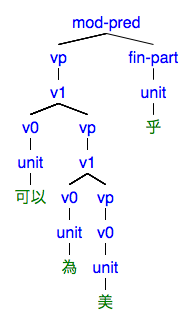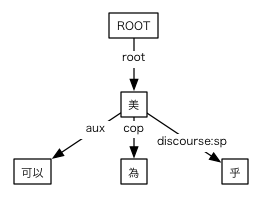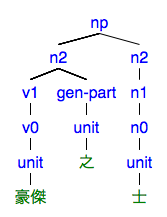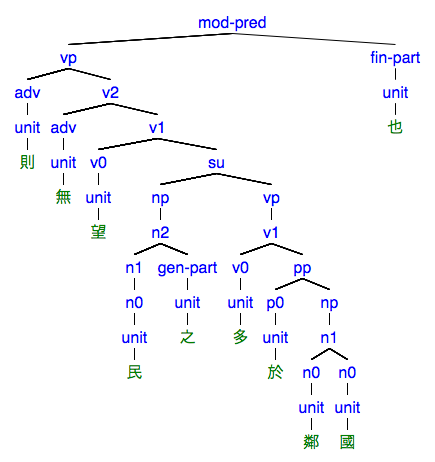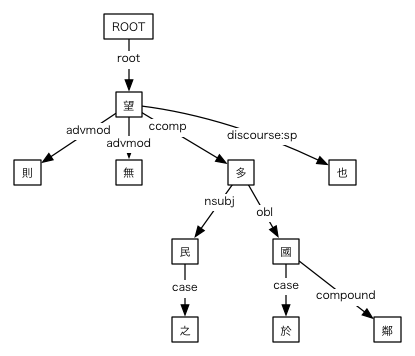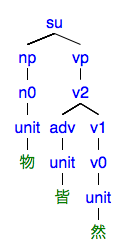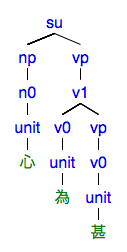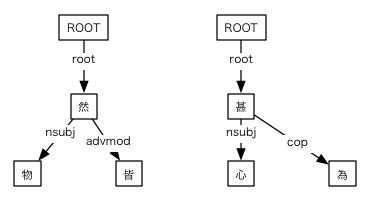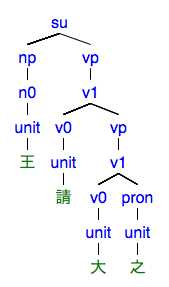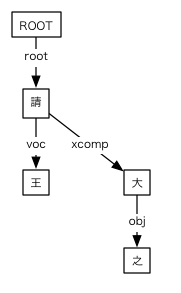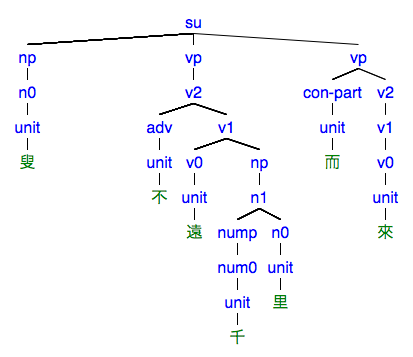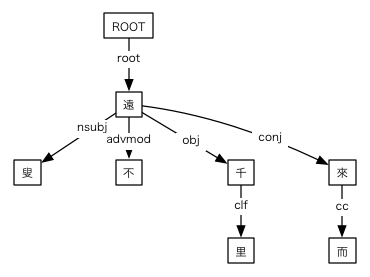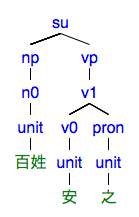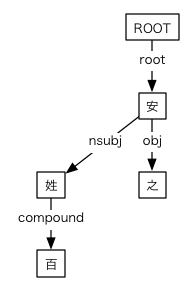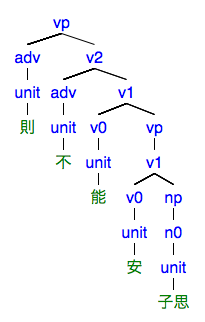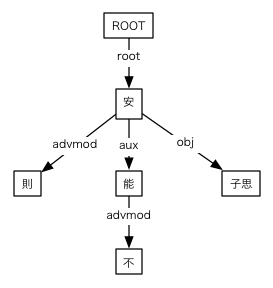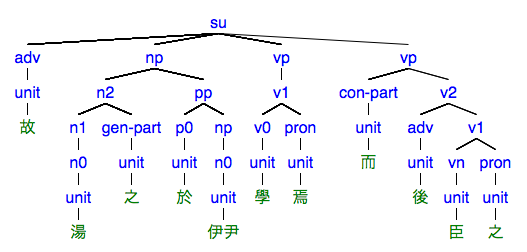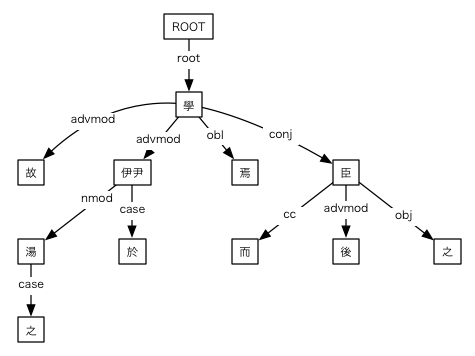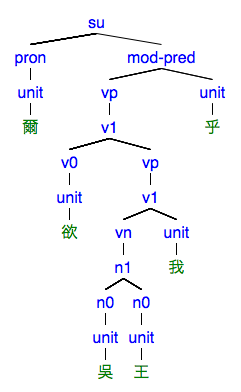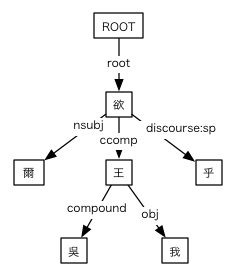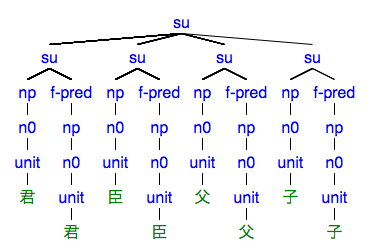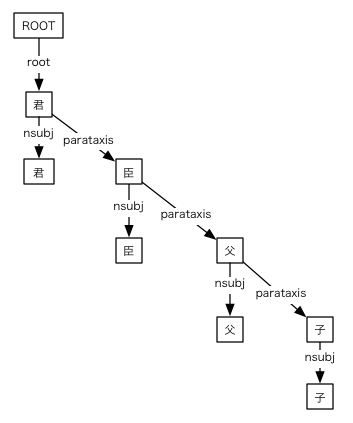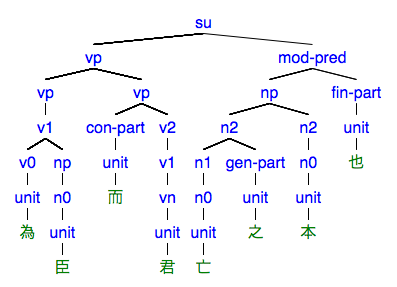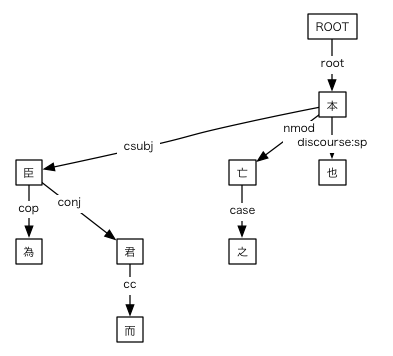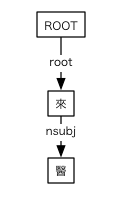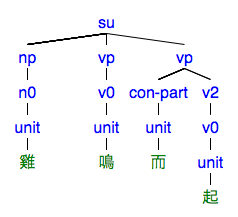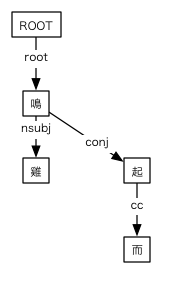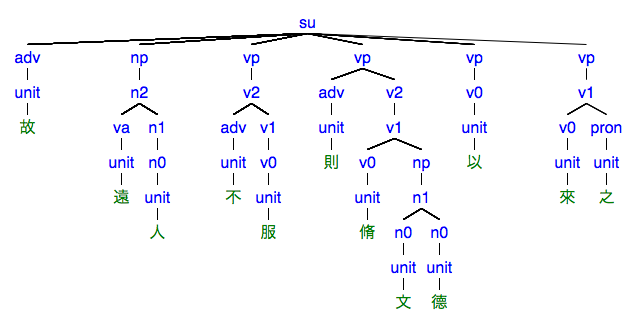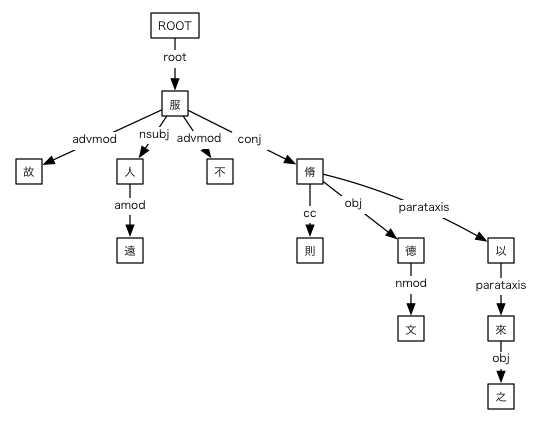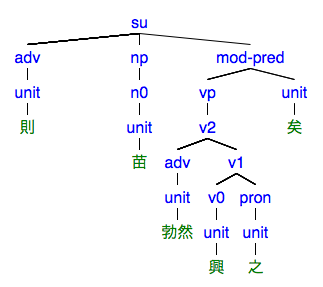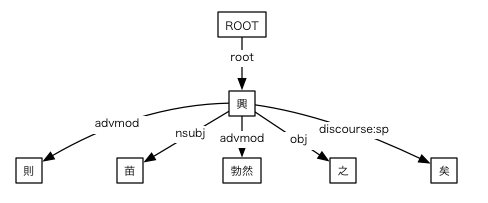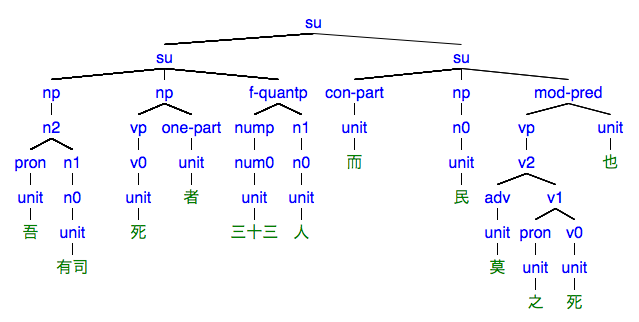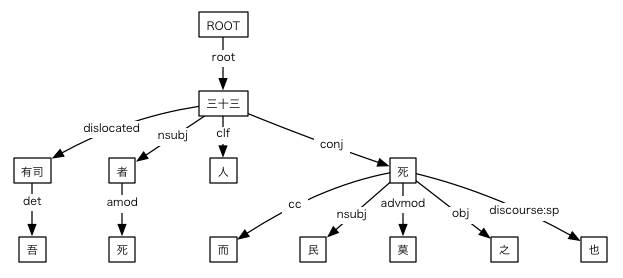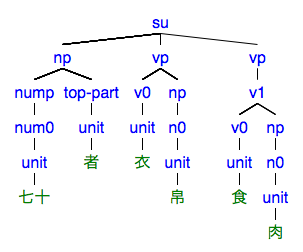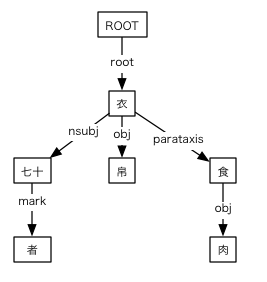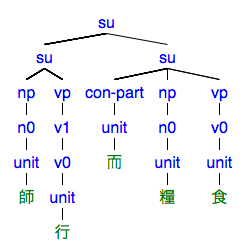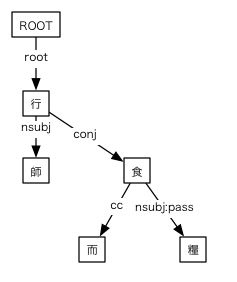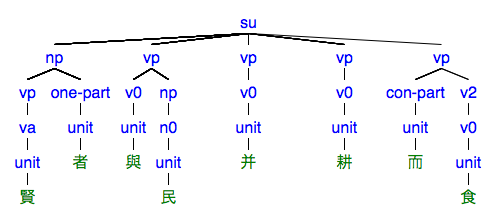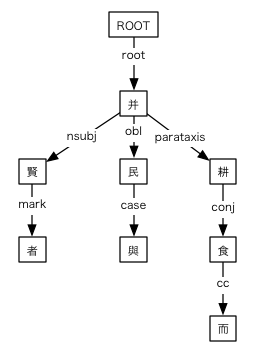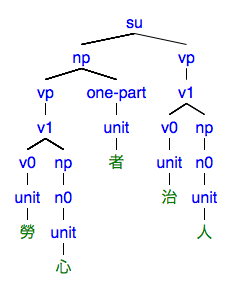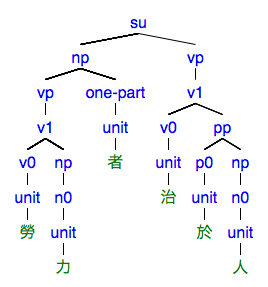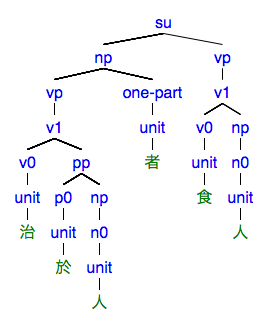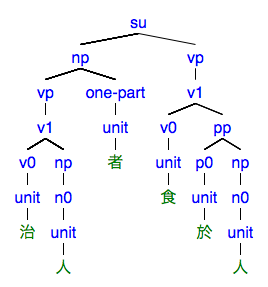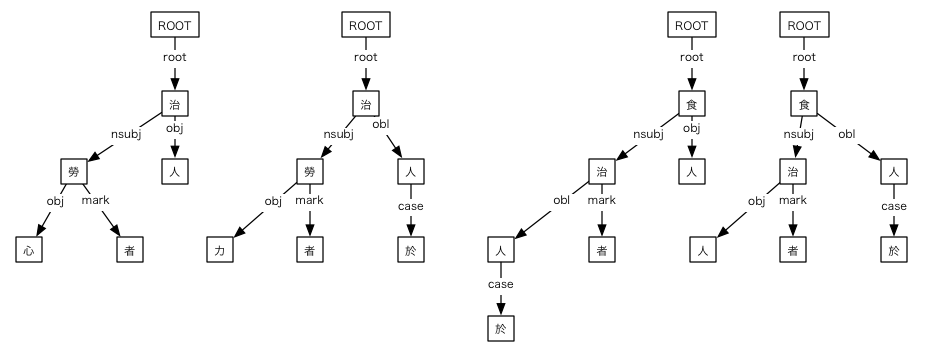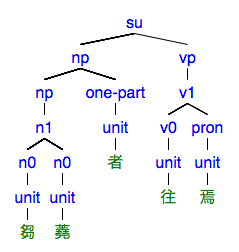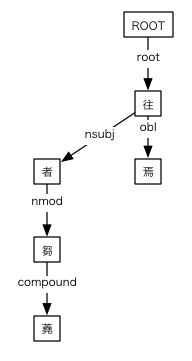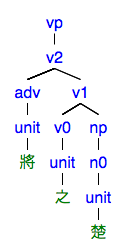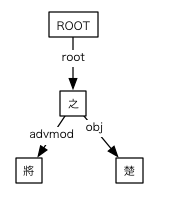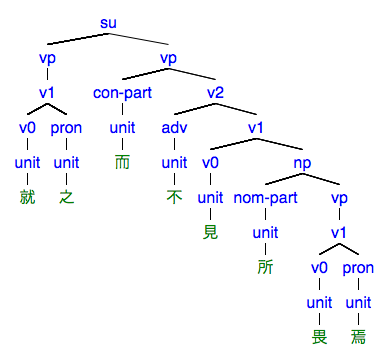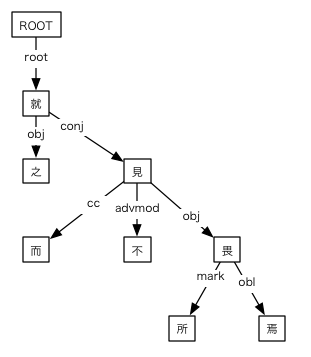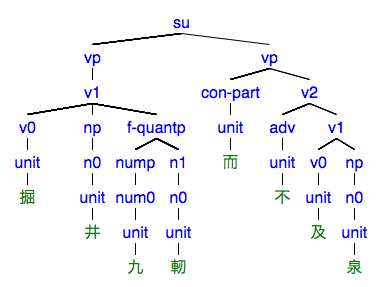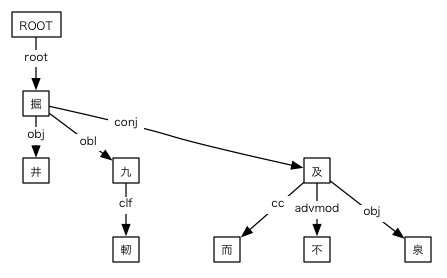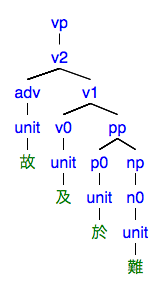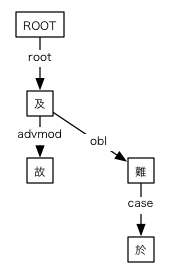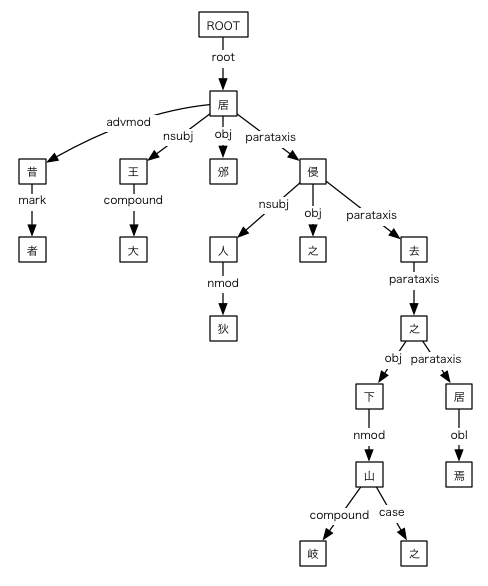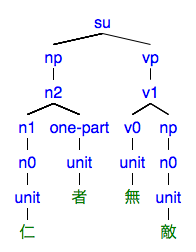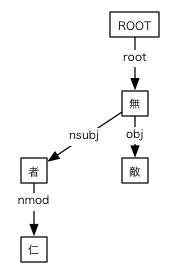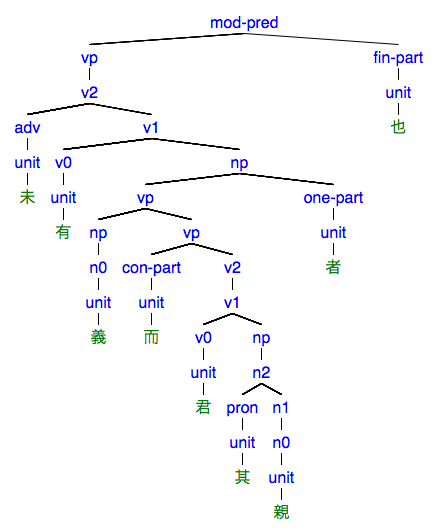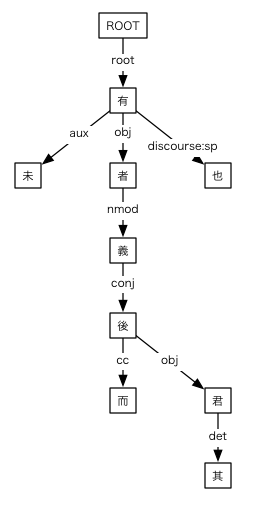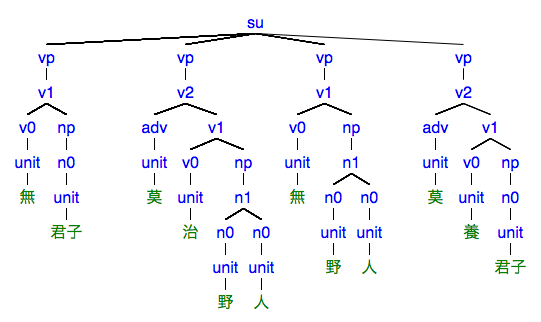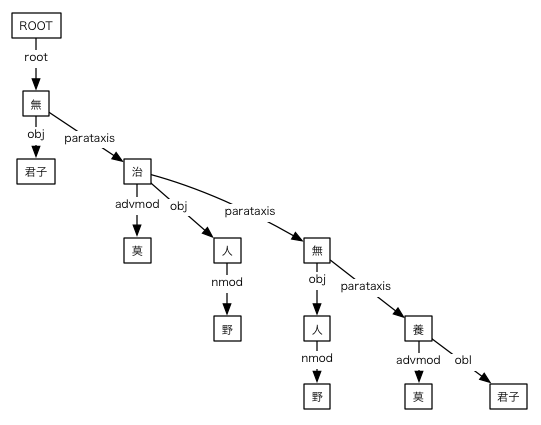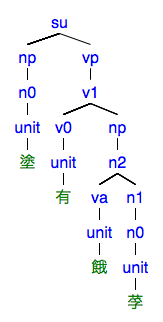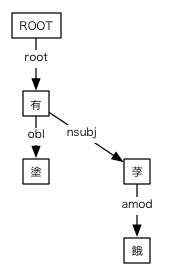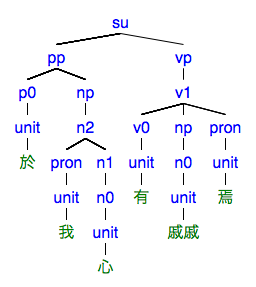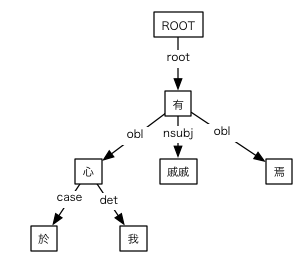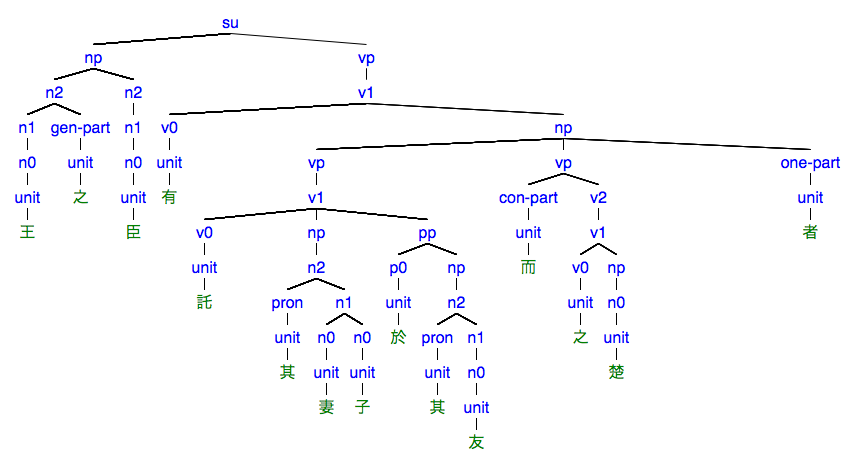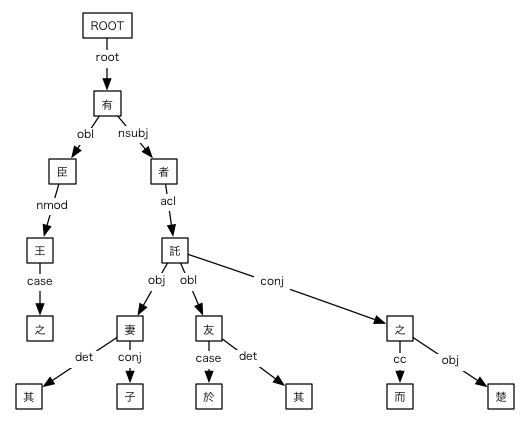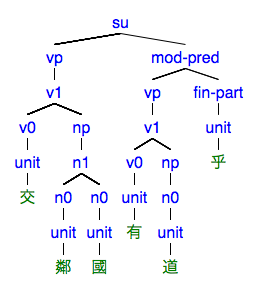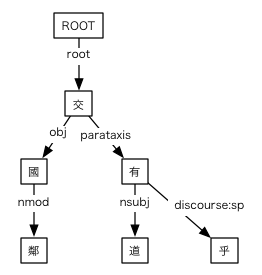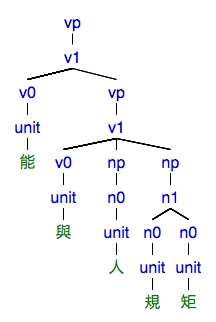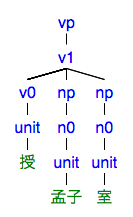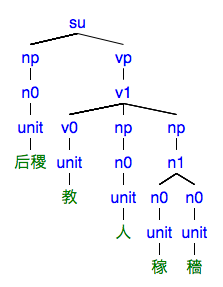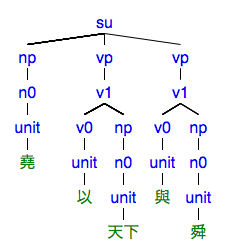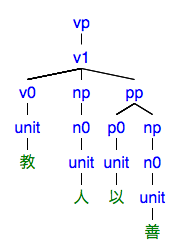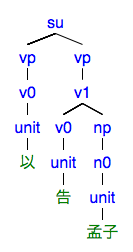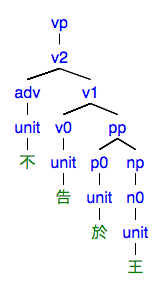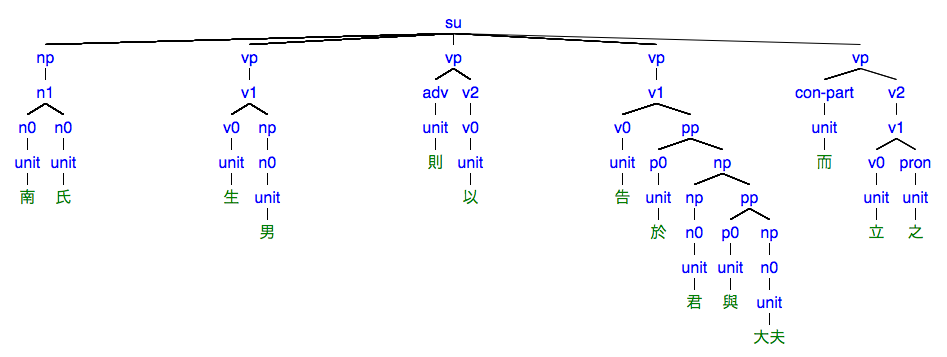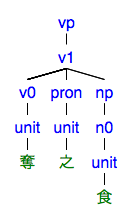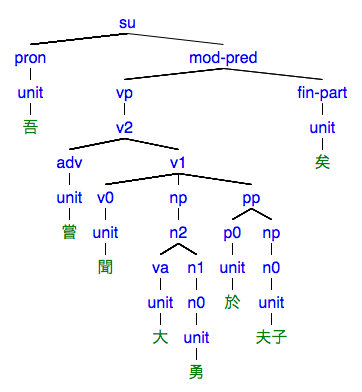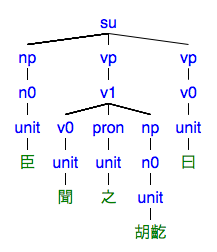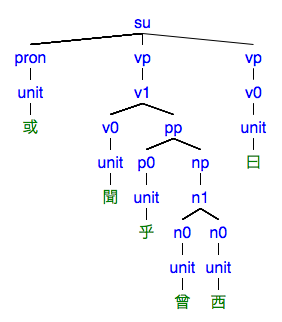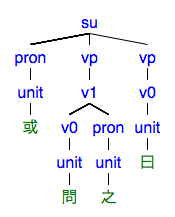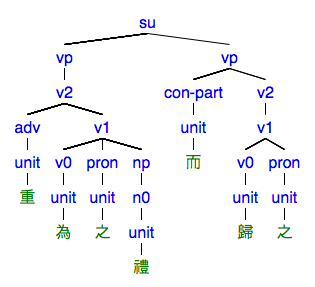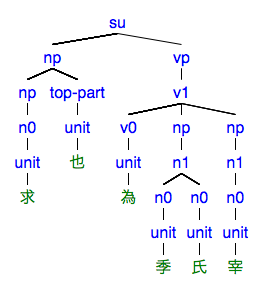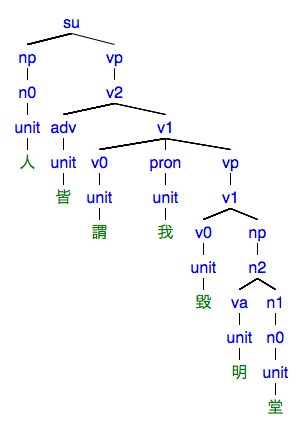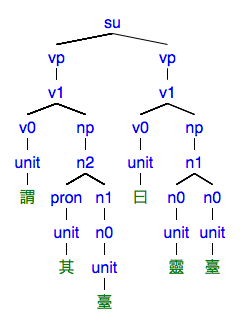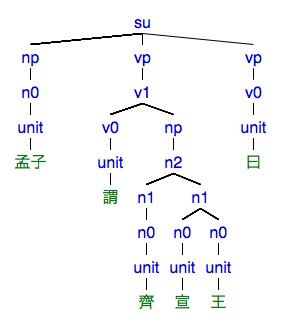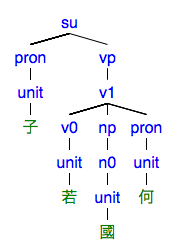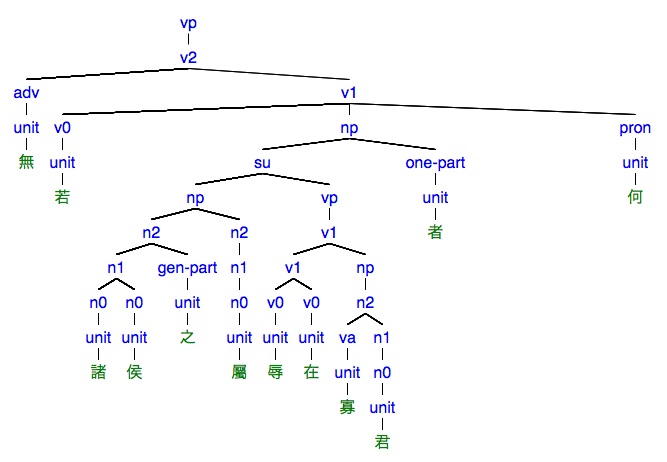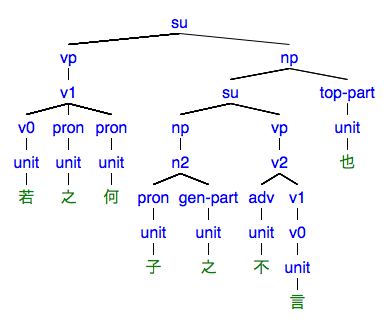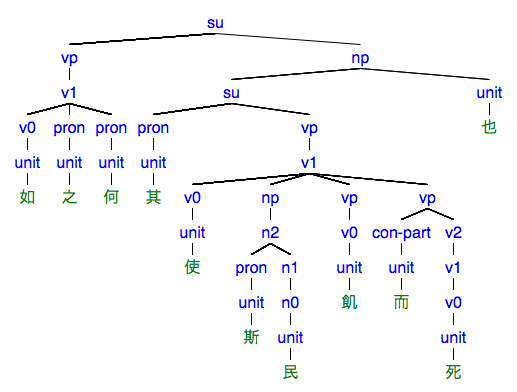解析例
#001:
孟子見梁惠王
Mencius saw King Hui of Liang.
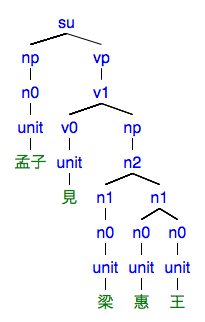
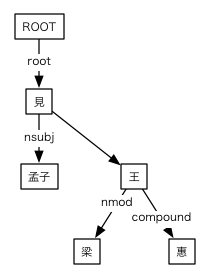
#002:
亦有仁義而已矣
[I] surely have benevolence and righteousness (to offer you) and that's all.
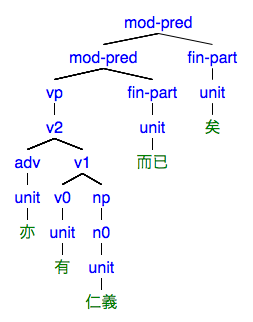
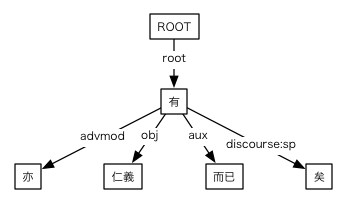
#003:
不違農時
[If one] does not go against the proper seasons of agriculture,
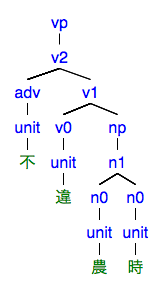
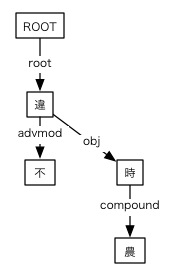
#004:
未有仁義而遺其親者也
There has never been one who was benevolent and righteous yet abandoned his parents.
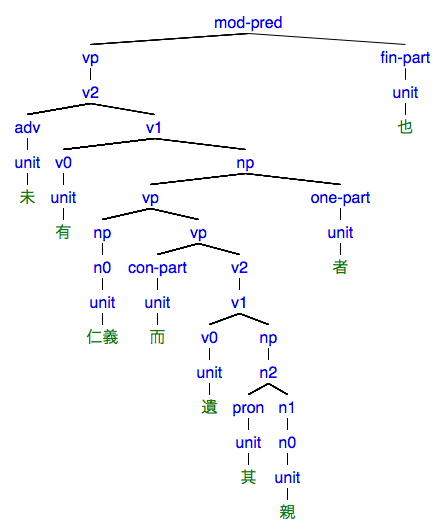
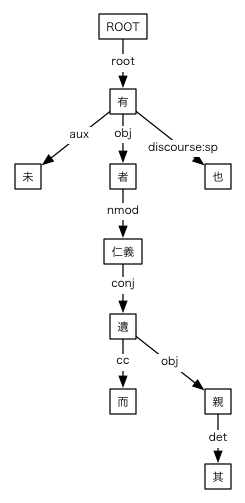
#005:
非我也,兵也
It was not I, it was the weapon.
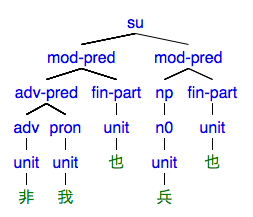
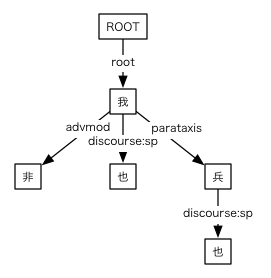
#006:
是不為也,非不能也
This is not-doing, it is not not-being-able.
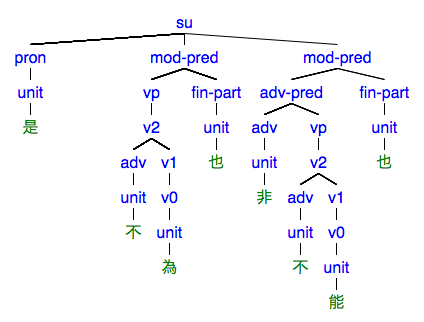
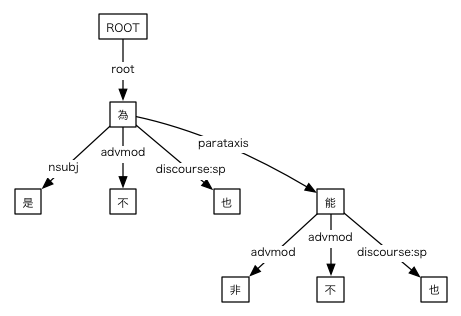
#007:
畏天者也
...is one who fears Heaven.
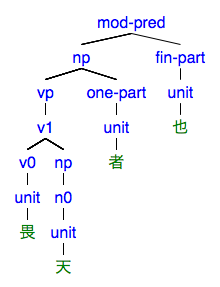
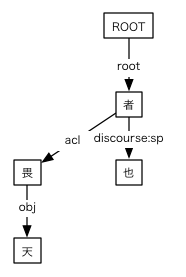
#008:
叟之所知也
It is what your reverence well knows.
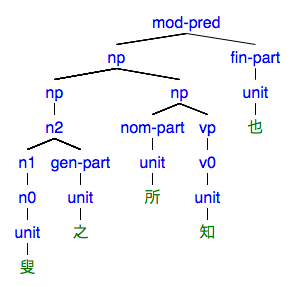
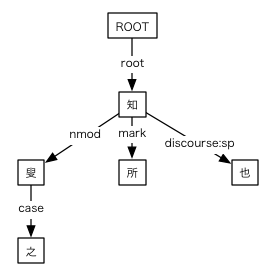
#009:
夫非盡人之子與
Are we not all the sons of some man?
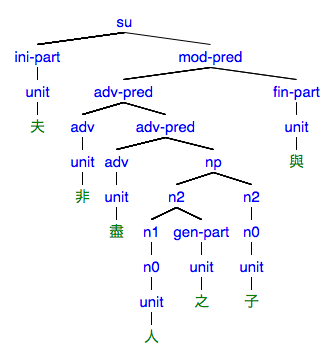
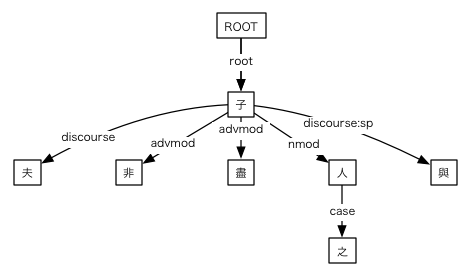
#010:
其正色邪
Is it its true colour?
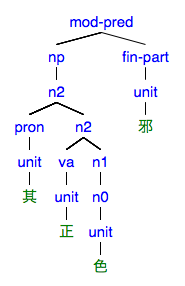
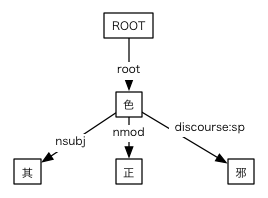
#011:
然而至此極者命也夫
That nonetheless I have reached this extremity, is fate, is it not?
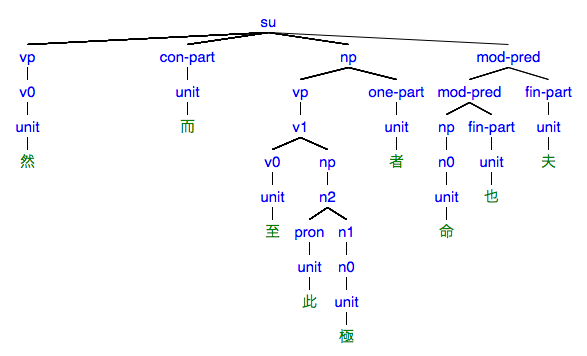
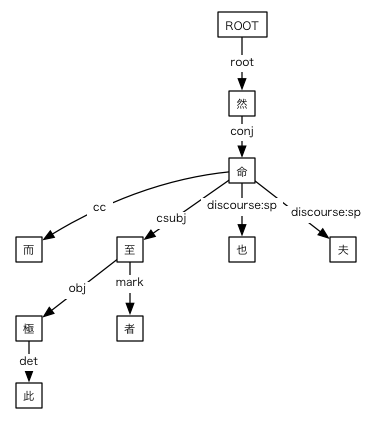
#012:
此文王之勇也
This was King Wén’s courage.
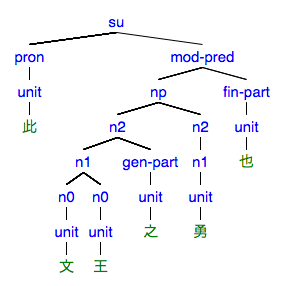
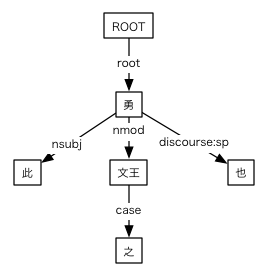
#013:
是亦走也
This was also running away.
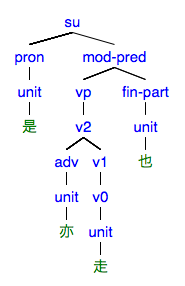
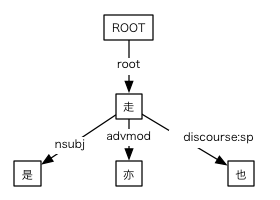
#014:
皆古聖人也
They were all sages of old.
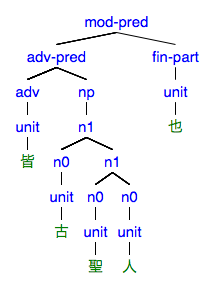
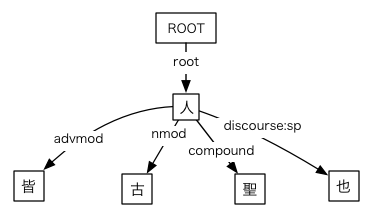
#015:
是乃仁術也
This indeed is the technique of rén.
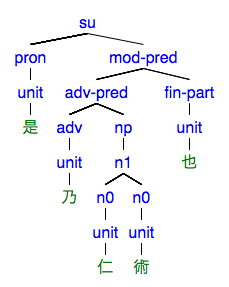
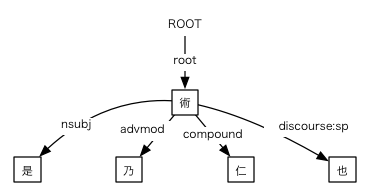
#016:
乃夫子也。吾貺子。
It was you (and no one else). I will reward you.
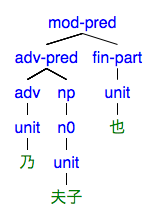
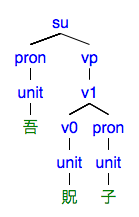
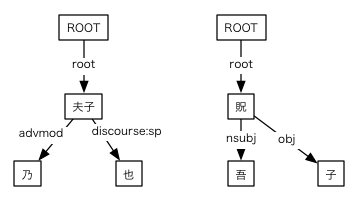
#017:
即不忍其觳觫,若無罪而就死地,故以羊易之
It was indeed that I could not bear its trembling, like an innocent person going to the place of execution, and so changed it for a sheep.
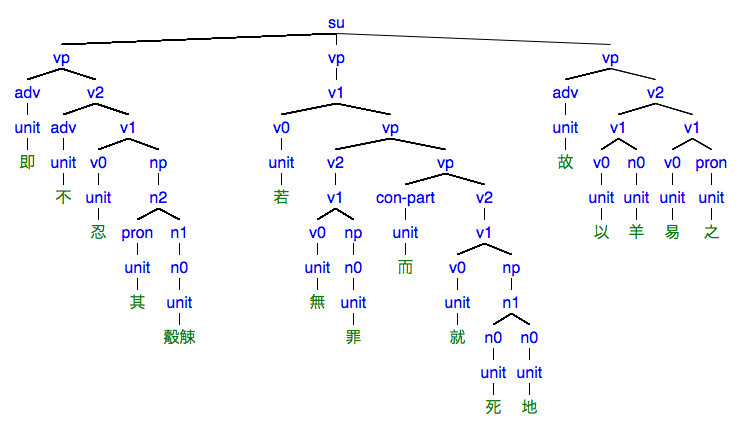
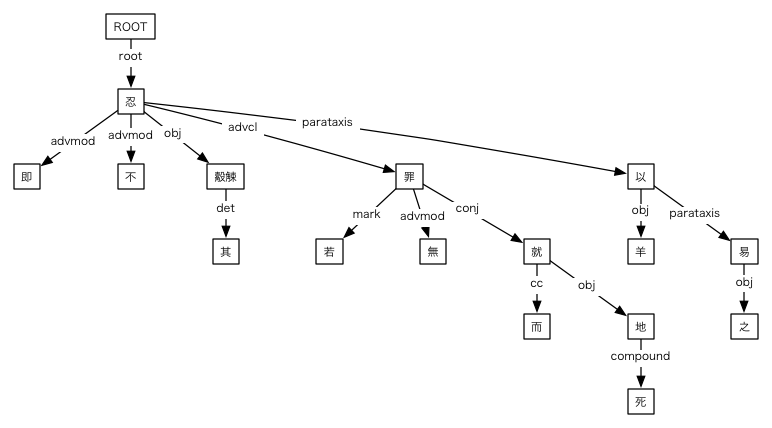
#018:
必若桀紂者也
... will necessarily be one like Jié or Zhōu.
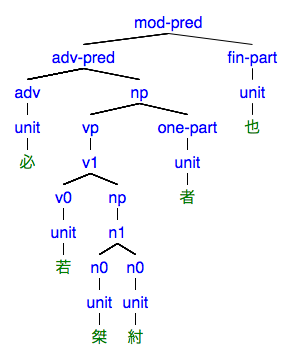
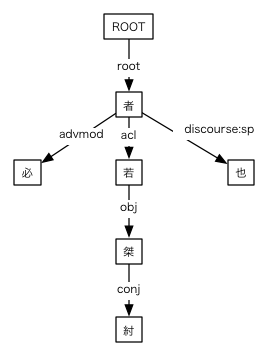
#019:
子誠齊人也
You are truly a man of Qí.
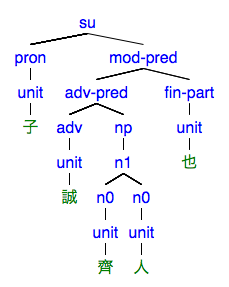
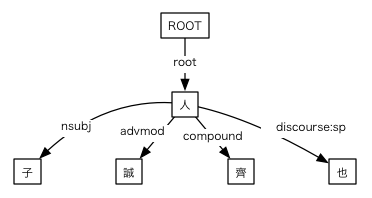
#020:
固所願也
It is certainly what I want.
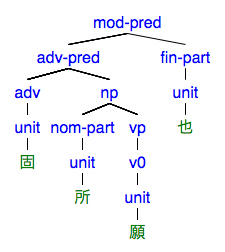
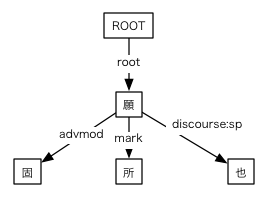
#021:
今之樂猶古之樂也
The music of today is like the music of old (from the point of view of the argument).
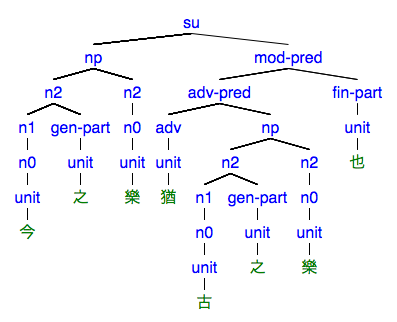
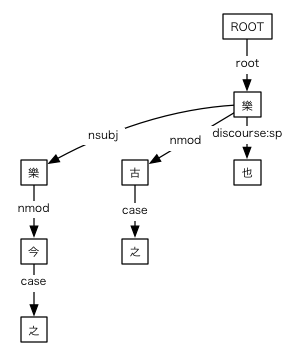
#022:
萬乘之國弒其君者必千乘之家
The one who murders the ruler of a country of ten thousand chariots will certainly be (the head of) a family of a thousand chariots.
#023:
是亂國已
One can tell that this is a disordered country.
#024:
(君子曰)此亦妄人也已矣
The gentleman will say, ‘I now realize that this is indeed a wild, reckless fellow.’
#025:
孟子為卿於齊
Mencius was a minister of state in Qí.
#026:
子為誰
sir make who = Who are you?
#027:
不為不多矣
not make not many PERFECT = is (already) not not-many.
#028:
人皆可以為堯舜
Men can all be a Yao or Shun.
#029:
老而無妻曰鰥
To be old and without a wife is called ‘guān.’
#030:
(公曰)是其生也與吾同物,命之曰同
The duke said, ‘This one in his birth is of the same substance as me.’ He named him Tong (‘Same’).
#031:
所臨唯信
What they (the spirits) attend is only good faith.
#032:
惟義所在
It is only where right behaviour lies (that a great man places his words and.
#033:
可以為美乎
... could [Ox Mountain] be (i.e., remain) beautiful [when its trees were all cut down to supply wood for the nearby city]?
#034:
(若)(夫)豪傑之士
(As for) heroic knights
#035:
則無望民之多於鄰國也
... then do not hope that your people will be more than [those of] the neighbouring countries.
#036:
物皆然,心為甚
Things are all like that and the heart is most so.
#037:
王請大之
I beg Your Majesty to make it great.
#038:
叟不遠千里而來
You have come, sir, not regarding 1,000 lǐ as too far.
#039:
百姓安之
The common people were peaceful under him.
#040:
則不能安子思
... then he could not make Zǐsī content.
#041:
故湯之於伊尹學焉而後臣之
Thus Tang’s [behaviour] towards Yìyǐn was to learn from him and afterwards make him his subject.
#042:
爾欲吳王我乎
Do you want to King-of-Wu me (= treat me in the way the King of Wú was treated)?
#043:
君君臣臣父父子子
Let the ruler act as a ruler should, the minister as a minister, the father as a father, the son as a son.
#044:
為臣而君亡之本也
For one who is a minister to act as a ruler is the root of perdition.
#045:
醫來
The physician came.
#046:
雞鳴而起…者
He who gets up when the cock crows ...
#047:
故遠人不服則脩文德以來之
Therefore, if distant people do not submit, cultivate civil virtue so as to make them come.
#048:
則苗勃然興之矣
... then the sprouts suddenly spring up in response to it [the rain].
#049:
吾有司死者三十三人而民莫之死也。
Thirty-three of my officers died and none of the people was willing to die for them.
#050:
七十者衣帛食肉
When seventy year olds wear silk and eat meat ...
#051:
師行而糧食
The host proceeds and supplies are eaten.
#052:
賢者與民并耕而食
The worthy plough and eat together with the common people.
#053:
勞心者治人勞力者治於人治於人者食人治人者食於人
Those who labour with their minds [literally: labour their minds] rule others, those who labour with their strength are ruled by others. Those who are ruled by others feed others, those who rule others are fed by others.
#054:
芻蕘者往焉
The gatherers of hay and firewood went there.
#055:
將之楚
... was going to go to Chu.
#056:
就之而不見所畏焉
Going up to him, I did not see anything to fear (= awesome) in him.
#057:
掘井九軔而不及泉
To dig a well to a depth of nine rèn (seventy-two feet) and not reach the spring ...
#058:
故及於難
Therefore he encountered calamities.
#059:
昔者大王居邠狄人侵之去之岐山之下居焉
In former times King Tài dwelt in Bīn. The Dí invaded it and he
left and went to beneath Mount Qí and dwelt there.
#060:
亦有仁義而已矣
(I) surely have only benevolence and righteousness [to offer you].
#002を見よ。
#061:
仁者無敵
The man of benevolence has no match.
#062:
未有義而後其君者也
There has never been one who was righteous and put his ruler last.
#063:
無君子莫治野人無野人莫養君子
If there were no gentlemen, there would be no one to rule the rustics; if there were no rustics, there would be no one to support the gentlemen.
#064:
塗有餓莩
On the roads there are people dying of hunger.
#065:
於我心有戚戚焉
In my heart there was a responsive feeling.
#066:
王之臣有託其妻子於其友而之楚者
[Suppose that] there was one of Your Majesty’s ministers who entrusted his wife and children to a friend and travelled to Chǔ ...
#067:
交鄰國有道乎
Is there a way for dealing with neighbouring countries?
#068:
能與人規矩
... can give a man a compass or a square ...
#069:
授孟子室
... to give Mencius a house ...
#070:
后稷教人稼穡
Hòu Jì taught the people sowing and reaping.
#071:
堯以天下與舜
Yáo with the world gave Shùn = Yáo gave the world to Shùn
#072:
教人以善
... teaching others goodness ...
#073:
以告孟子
He told it to Mencius.
#074:
不告於王
... without reporting it to the king ...
#075:
南氏生男,則以告於君與大夫而立之
If Lady Nán should give birth to a male child, I would announce it to the ruler and the great officers and establish him [as heir].
#076:
奪之食
by robbing him of his food
#077:
吾嘗聞大勇於夫子矣
I once heard about great courage from the master.
#078:
臣聞之胡齕曰…
I heard it from Húhé that ...
#079:
或聞乎曾西曰…
Someone asked Zēng Xī ...
#080:
或問之曰…
Someone asked him ...
#081:
重為之禮而歸之
He treated him with great ceremony and sent him home.
#082:
求也為季氏宰
Qiú was steward for the Jì clan.
#083:
人皆謂我毀明堂
People all tell me to destroy the Hall of Light.
#084:
謂其臺曰靈臺
They called his tower the spirit tower.
#085:
孟子謂齊宣王曰
Mencius said to King Xuān of Qí ...
#086:
子若國何
What are you, sir, going to do about the country?
#087:
無若諸侯之屬辱在寡君者何
We have no way of providing for the retinues of feudal lords who condescend to visit us.
#088:
若之何子之不言也
What is to be done about your not speaking?
#089:
如之何其使斯民飢而死也
What would he have said about their causing these people to die of hunger?
